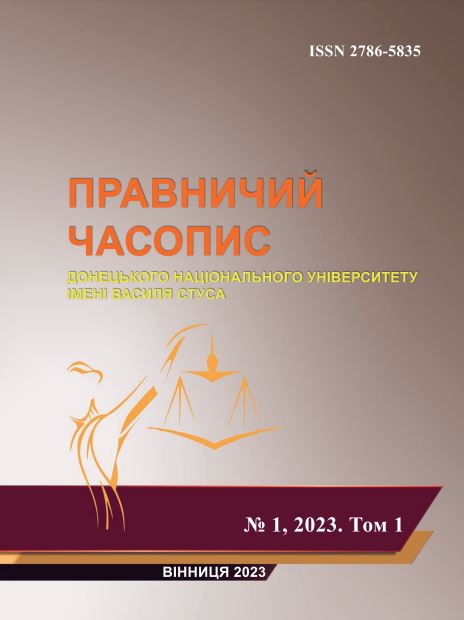Debate and legal argumentation: importance in the education process of future lawyers
DOI:
https://doi.org/10.31558/2786-5835.2023.1.1.12Keywords:
public discussion; legal discourse; legal argumentation; monologic discourse; dialogic discourse; rules of discourse; speech acts-affirmations; arguments of autonomy; consensus and democracy; IRAC method of legal analysis; debates; legal clinical educationAbstract
In the 21st century in the world of highly developed information and computer technologies, the question of whether certain professions will be preserved in connection with the replacement of many processes of human activity by digitalization assets is increasingly being discussed. The role of lawyers has not escaped this question. But is it that simple in the world of legal decisionmaking? Will Chat GPT, for example, be able to make court decisions and prepare legal advice? It is clear that in the modern world with the rapid dynamics of social relations, robots will not be able to solve complex legal tasks. Therefore, the role of a lawyer is important, and information and computer technologies are designed to improve processes and speed up the preparation of documents. For a future lawyer, the skills of public discourse, formation and construction of arguments are of great importance. For this, it is important to observe the principles of freedom, equality and autonomy of all participants in the discussion. In the process of preparing for the discussion, it is appropriate to use the IRAC method of legal analysis. The best ways to hone your public discourse skills are through educational debates and moot courts. These methods are very popular in the system of higher legal education and such that they are loved by students. The role of legal clinics in the application of such methods is special.
References
Голубєва Н. Ю. Електронне судочинство: міжнародний досвід. Одеса, «Фенікс». 2020, 204 с.
Алексі Р. Теорія дискурсу та права людини. Філософія права і заг. теорія права. № 1, 2013. Ст. 73–75.
Загальна теорія права: підручник / за заг. ред. М. І. Козюбри. Київ: ВАІТЕ, 2016. 392 с.
Alexy R. A Theory of Legal Argumentation. Trans. Ruth Adler and Neil MacCormick. Oxford: Oxford University Press Clarendon, 1989. P. 193.
Шепетяк О. Теорія мовленнєвих актів. Вісник факультету романо-германської філології / за ред. В. П. Кеміня Вип. 3. Дрогобич: Редакційно-видавничий відділ ДДПУ, 2008. С. 93–105.
IRAC AND CRRACC. URL: https://www.law.cuny.edu/legal-writing/students/irac-crracc/ irac-crracc-1/

